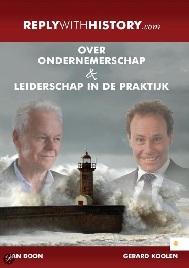59. Spread of activities, no dependence on one client

Hi Gerard,
This week I got a call from a friend who works for a large maintenance company at TATA IJmuiden. They have been told that all contracts will be withdrawn with immediate effect. This is probably linked with the ongoing wage negotiations, the unions have requested a 3% pay raise, and also with the severe economic circumstances in which the steel industry finds itself. This is disastrous for smaller businesses which depend entirely on TATA and the continuity of their businesses is directly at risk.
10 to 20 years ago, one of the companies I was involved in was 100% dependent on Hoogovens (now Tata Steel). This company was active in the transport of steel slabs, coal and ore. The company constantly made smart adjustments to their heavy equipment to undertake a variety of activities for TATA with unrivalled efficiency. The company also implemented smart applications which ensured that alternatives to the rail network could be found in the event of strikes, which closed down all traffic around the plant. This made strikes less effective.
Contracts with TATA were periodically renegotiated and margins were revised ever downward by TATA. As a result, the company decided to change strategy and increase its focus on the dredging sector. With similar equipment, the company built self-propelled pontoons (floating platforms not dependent on tugboats). Large cranes can be operated in ports and canals on these pontoons.
Soon sales outside TATA comprised more than 50% of the total (including the Middle East). However, the company was always dependent on large contractors which had a monopoly in the dredging industry. As the company did not want to be too dependent on the large contractors and due to the global crisis, it decided to build a special dredger. With this “hopper” the company could also contract jobs independently from the big construction and dredging companies.
The investment represented a substantial financial risk and was a big drain on the cash flow of the company. As a result of the crisis, the banks only wanted to partially finance the project, which placed a lot of pressure on the organization, especially when the investments exceeded the budget. The hopper has now been active for around 1½ years and has generated a decent revenue and profit.
What can we learn from this? Entrepreneurship is about changing one’s strategy on time. You need courage to take a new direction and to commit and justify large investments. In addition, the appointment of a specialized team with the necessary experience, knowledge and network was essential for success.
Kind regards,
Jan Stam












Leave a Reply